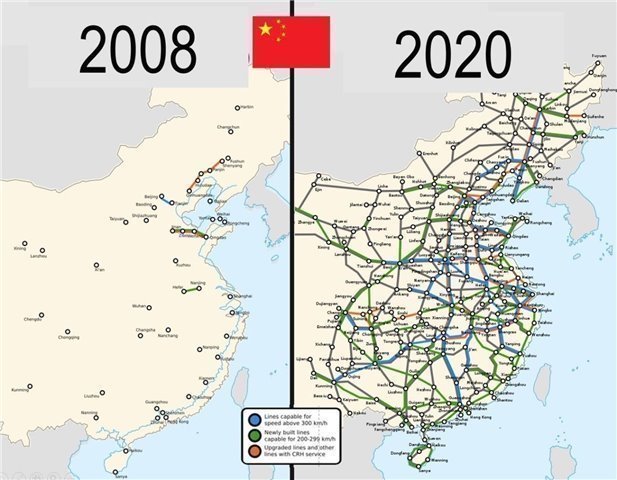I was amazed by the contrast between China and the UK in high speed railway development. China has built 42,000 km since 2008, while the UK has only planned 215 km by 2033.
What can the UK learn from China? How can the UK improve its infrastructure and connectivity? What are the pros and cons of high speed railway for both countries?
China has a clear vision and strategy, aligned with its economic and social goals. China uses high speed railway to boost regional development, reduce carbon emissions, and enhance national integration. China also has strong political will and public support, which help it overcome hurdles.
The UK lacks a coherent and consistent vision, and faces delays, controversies, and cost overruns. The UK also has more challenges in land acquisition, environmental impact, and public opposition. The UK needs a clear and compelling case for HS2, and how it fits into its broader plans.
China has a competitive edge in engineering and technology, which enable it to build faster, cheaper, and safer. China has its own standards, designs, and equipment, suited to its needs. China also has a large and skilled workforce, and a robust supply chain and quality control. ️
The UK relies more on foreign expertise and technology, which increase its costs and risks. The UK also has more technical and operational challenges, such as interoperability, compatibility, and safety. The UK needs to invest more in its own research and innovation, and collaborate and learn more with others.
China may have compromised some health and safety aspects, such as labor rights, environmental protection, and social impact. China may also have issues of overcapacity, debt, and corruption. China needs to balance its speed and scale with its quality and sustainability.
The UK has more stringent and rigorous standards and regulations, which ensure its health and safety, and its environmental and social responsibility. The UK also has more checks and balances, and more transparency and accountability. The UK needs to maintain its high standards and values, and find ways to improve its efficiency and effectiveness.
In conclusion, China and the UK have different approaches and experiences, which reflect their contexts and priorities. Both can learn from each other, and from others, to improve their systems. High speed railway is a catalyst for transformation.
What do you think? Do you agree or disagree? Do you have any insights or suggestions? 